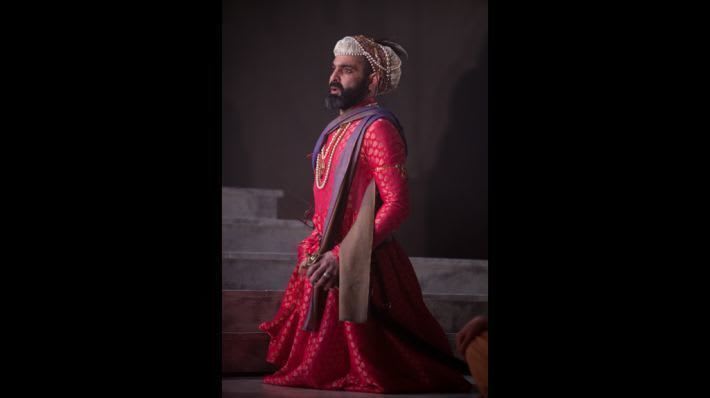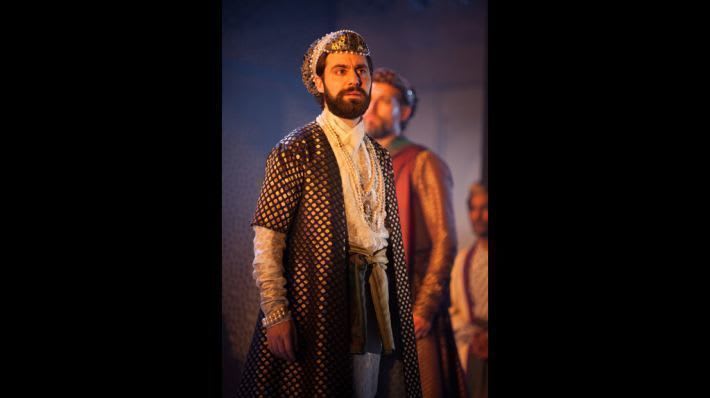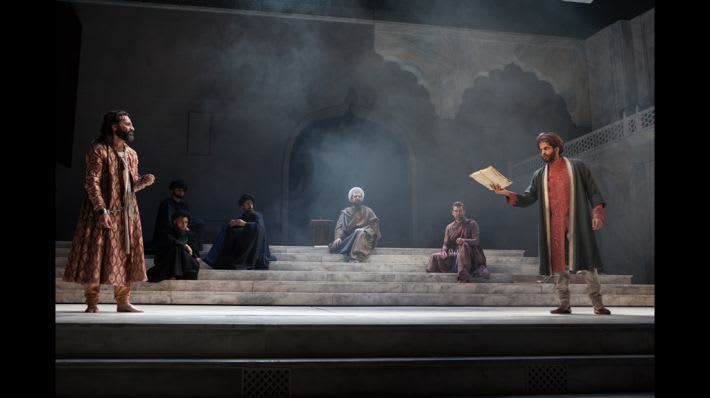Dara, written by Pakistani playwright Shahid Nadeem and adapted in an appropriately poetic style, by Tanya Ronder is a revelation, an epic play that uses mythic tales to speak to us today.
The evening flashes back and forth in time, starting in 1659 and stopping off at various points in the previous 30 years to flesh out the characters and rivalries of four of the children of Vincent Ebrahim's Emperor Shah Jahan, the man who built the Taj Mahal but was unable to enjoy its full grandeur due to failing eyesight.
From the opening scenes in which Zubin Varla, imperious as Prince Dara, is forced to flee from one of his many brothers, the story is engrossing. It presents an intoxicating mix of family saga, history, politics and religion with enough drama and passion for any thriller.
Had Shakespeare penned this play, he would have named it after that treacherous sibling. Aurangzeb, played by Sargon Yelda, is as ruthless and untrustworthy as Richard III, in a few minutes double-crossing two brothers in the name of religion, while power is the devout, duplicitous Muslim's true motivation.
He is merely fulfilling his destiny as predicted by a sufi fakir who had reluctantly but unfailingly predicted which of the Emperor’s sons would eventually rule and, like a Cassandra, regretted his foresight for ever more.
During 2½ hours, we learn much more about the warring family but Dara could also be seen as a crash course in elements of Islamic lore, even delivering a flavour of a Sharia court in action.
That court scene, in which the protagonist attempts to justify freethinking beliefs that are 350 years ahead of their time, is a great tour-de-force. His long, powerful speech leading up to the interval should be heard around the world as all of us struggle to get to grips with political power shifts that are persuading young people to sacrifice their lives for a greater glory.
On the surface, Dara was the noble warrior son destined to succeed his father, while Aurangzeb, is a repressed religious fundamentalist who hated Hindus and followed the religious strictures against touching even a drop of liquor.
The genius of Shahid Nadeem's play is that, having introduced the middle-aged princes, it takes us back in time to gain an understanding as to why the two men took on these characters and how each found a loyal sister to support their endeavours, no wife surviving long enough to make it into the evening.
We witness how childhood jealousies and an all-powerful father had a profound influence and then, ten years later, see Aurangzeb playing out the marvellous parable of the tiger and the goat (go and see the play), while Dara learns humility at the feet of an ascetic holy man.
Nadia Fall directs a large cast with deft skill, maintaining pace with the assistance of Katrina Lindsay's sweeping screens, which echo the architecture of the age and allow scene changes that are sometimes combined with traditional music and dance.
Dara is a work worthy of Pakistan’s national theatre but it is so well-written and of such great importance in the contemporary world that we should all be grateful to the team that has brought it to our own equivalent.


